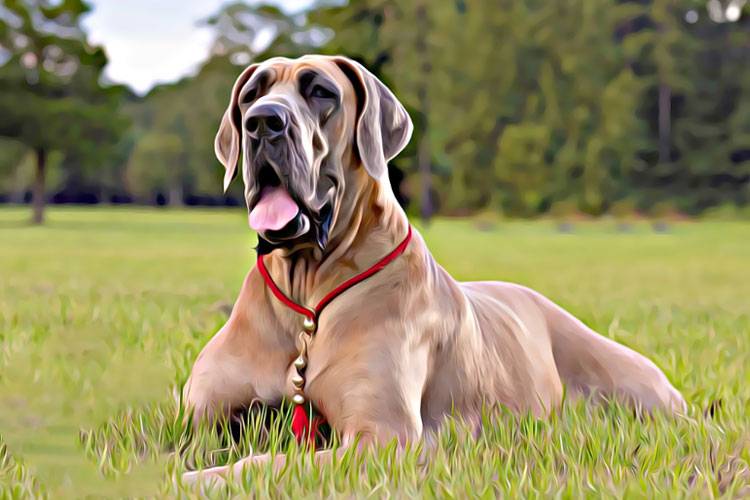Table of Contents Show
If you grew up watching cartoons, chances are you’ve heard of Hanna-Barbera’s “Scooby Doo”. This lovable Great Dane has been a staple of American pop culture since he first appeared on television screens in the late 1960s. The show was titled as “Scooby-Doo, Where Are You!” and was the first Saturday morning animated TV series to use a laugh track. But, what kinda dog was Scooby Doo?
In this post, we’ll take a closer look at the breed of dog that inspired the beloved character and explore some of the reasons why Scooby-Doo has become such an enduring icon.
The Great Dane: Scooby Doo’s Real-Life Inspiration
The Great Dane is a breed of dog that originated in Germany, where it was primarily used for hunting large game. These dogs are known for their imposing size, with males typically weighing between 140 and 175 pounds and standing up to 32 inches tall at the shoulder. Great Danes are also known for their gentle and friendly demeanor, making them popular pets in households around the world.
It’s believed that the creators of Scooby-Doo, Joe Ruby and Ken Spears, chose the Great Dane as the model for the character because of its size and unique appearance.
Great Danes have a long snout, droopy jowls, and a distinctive “widow’s peak” on their forehead, all of which were incorporated into Scooby-Doo’s design.
However, unlike most Great Danes, Scooby Doo is portrayed as being quite timid and easily frightened, which adds to his comedic appeal.
Why Has Scooby-Doo Endured for So Long?
Scooby-Doo has been a beloved character for more than 50 years, but what is it about him that has kept audiences coming back for more? Here are just a few of the reasons why Scooby-Doo has endured as an icon of American pop culture:
Nostalgia:
For many people, Scooby-Doo represents a happy childhood memory. Watching the show with family and friends was a beloved ritual for generations of viewers, and the character’s enduring popularity is a testament to the emotional connection that many people feel to the franchise.
Humor:
Scooby-Doo is a comedic character at heart, and his clumsy antics and humorous reactions to scary situations have always been a key part of the show’s appeal. His catchphrases (“Scooby Snacks!” and “Ruh-roh!”) have become part of the cultural lexicon, and his comedic timing is still as sharp as ever.
Mystery:
The core concept of the Scooby-Doo franchise is simple but effective: a group of teenagers and their talking dog solve mysteries and unmask villains. The mystery-solving aspect of the show has always been a draw for viewers, and the formula has been replicated in countless other TV shows and movies over the years.
Social Commentary:
Although it’s easy to dismiss Scooby-Doo as a simple kids’ show, the franchise has often tackled more complex themes and issues. For example, many episodes of the original series dealt with topics like environmentalism, consumerism, and prejudice. By weaving these messages into the fabric of the show, the creators of Scooby-Doo were able to make a positive impact on young viewers.
Conclusion
In conclusion, Scooby Doo is one of the most iconic characters in American pop culture, and his enduring popularity is a testament to the appeal of his unique brand of humor, mystery-solving, and social commentary. While the character’s design was inspired by the Great Dane, his personality and cultural significance are entirely his own.
Whether you’re a lifelong fan or you’re discovering the character for the first time, there’s no denying the impact that Scooby-Doo has had on generations of viewers.
From his catchphrases to his goofy antics, Scooby-Doo has become a cultural touchstone that continues to resonate with audiences of all ages.
Whether you’re watching the original series, the various spin-offs, or the latest big-screen adaptations, one thing is clear: Scooby-Doo is here to stay.
His legacy will continue to inspire and entertain for many years to come, proving that a talking Great Dane can be so much more than just a cartoon character.
Lear More About:

